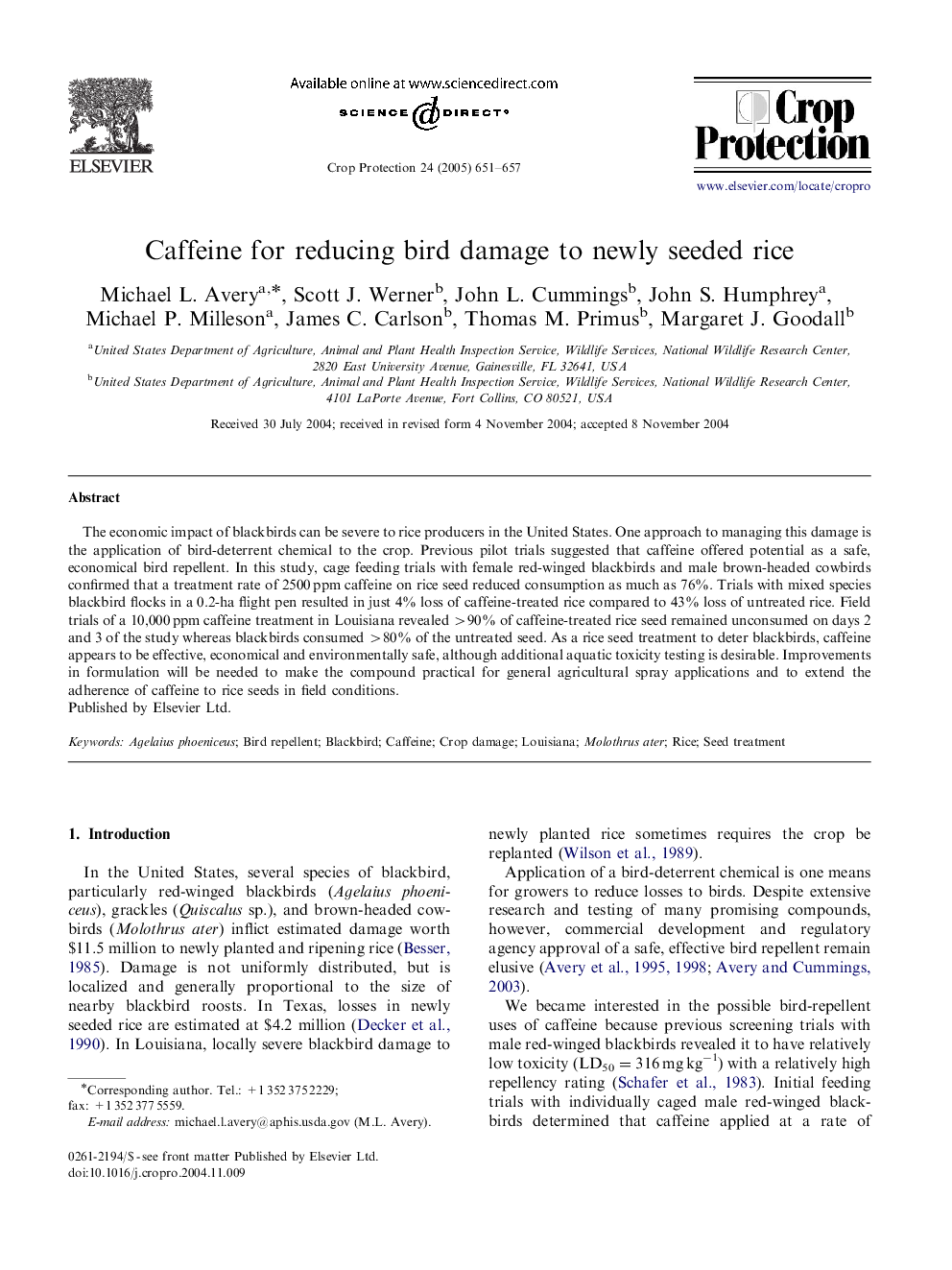| Article ID | Journal | Published Year | Pages | File Type |
|---|---|---|---|---|
| 9473028 | Crop Protection | 2005 | 7 Pages |
Abstract
The economic impact of blackbirds can be severe to rice producers in the United States. One approach to managing this damage is the application of bird-deterrent chemical to the crop. Previous pilot trials suggested that caffeine offered potential as a safe, economical bird repellent. In this study, cage feeding trials with female red-winged blackbirds and male brown-headed cowbirds confirmed that a treatment rate of 2500Â ppm caffeine on rice seed reduced consumption as much as 76%. Trials with mixed species blackbird flocks in a 0.2-ha flight pen resulted in just 4% loss of caffeine-treated rice compared to 43% loss of untreated rice. Field trials of a 10,000Â ppm caffeine treatment in Louisiana revealed >90% of caffeine-treated rice seed remained unconsumed on days 2 and 3 of the study whereas blackbirds consumed >80% of the untreated seed. As a rice seed treatment to deter blackbirds, caffeine appears to be effective, economical and environmentally safe, although additional aquatic toxicity testing is desirable. Improvements in formulation will be needed to make the compound practical for general agricultural spray applications and to extend the adherence of caffeine to rice seeds in field conditions.
Keywords
Related Topics
Life Sciences
Agricultural and Biological Sciences
Agronomy and Crop Science
Authors
Michael L. Avery, Scott J. Werner, John L. Cummings, John S. Humphrey, Michael P. Milleson, James C. Carlson, Thomas M. Primus, Margaret J. Goodall,
